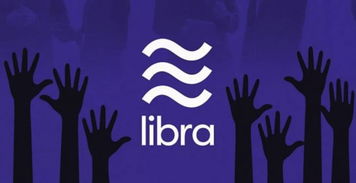Hey there, digital detective! Have you ever wondered what those mysterious digital coins are called in the English-speaking world? Well, you're in luck because today, we're diving into the fascinating world of cryptocurrency and uncovering the secret language behind it. So, let's embark on this crypto-journey and decode the term \加密货币\ in English!
The Cryptic Code: Decoding \加密货币\

When it comes to digital currencies, the term \加密货币\ is like a puzzle waiting to be solved. In English, this term translates to \Cryptocurrency.\ It's a term that's become synonymous with innovation, mystery, and a whole lot of excitement in the financial world.
The Birth of Cryptocurrency

To understand cryptocurrency, we need to go back to 2009 when Bitcoin, the first cryptocurrency, was born. Created by an anonymous person or group using the pseudonym Satoshi Nakamoto, Bitcoin introduced the world to a decentralized digital currency that operates without the need for a central authority like a bank or government.
The Magic Behind Cryptocurrency

So, what makes cryptocurrency so special? The answer lies in its underlying technology, blockchain. Blockchain is a decentralized ledger that records transactions across many computers so that the record cannot be altered retroactively without the alteration of all subsequent blocks and the consensus of the network.
But wait, there's more! Cryptocurrency relies on cryptography, a method of securing communication and information. This is where the term \加密\ (meaning \encrypted\ in English) comes into play. Cryptography ensures that transactions are secure and that only the intended recipient can access the information.
The Different Kinds of Cryptocurrency
Now that we've got the basics down, let's explore the different types of cryptocurrency. Here are a few you might have heard of:
- Bitcoin (BTC): The granddaddy of all cryptocurrencies, Bitcoin was the first to hit the scene and remains the most popular.
- Ethereum (ETH): Known for its smart contract capabilities, Ethereum has become a platform for building decentralized applications.
- Ripple (XRP): Designed to facilitate international financial transactions, Ripple aims to make cross-border payments faster and more affordable.
- Litecoin (LTC): Often referred to as \silver\ to Bitcoin's \gold,\ Litecoin is similar to Bitcoin but with faster transaction times.
The Rise of Altcoins
While Bitcoin might be the most famous, there are countless other cryptocurrencies out there, often referred to as \altcoins.\ These alternative coins offer various features and benefits, from privacy-focused cryptocurrencies like Monero to energy-efficient ones like Tezos.
The Cryptocurrency Ecosystem
The cryptocurrency ecosystem is vast and ever-evolving. It includes exchanges where you can buy and sell cryptocurrencies, wallets to store your digital assets, and a community of enthusiasts, developers, and investors who are passionate about the future of money.
The Challenges and Controversies
Despite its many advantages, the world of cryptocurrency is not without its challenges. Issues like price volatility, regulatory uncertainty, and security concerns have raised questions about the future of digital currencies.
The Future of Cryptocurrency
As we look to the future, it's clear that cryptocurrency is here to stay. With advancements in technology and increasing acceptance from governments and businesses, we can expect to see more innovation and growth in the crypto space.
In Conclusion
So, there you have it, the secret language behind \加密货币\ is \Cryptocurrency.\ It's a term that encapsulates the revolutionary potential of digital currencies and the technology that powers them. Whether you're a seasoned investor or just curious about the crypto world, understanding the basics of cryptocurrency is a step towards embracing the future of finance. Happy crypto-hunting!
